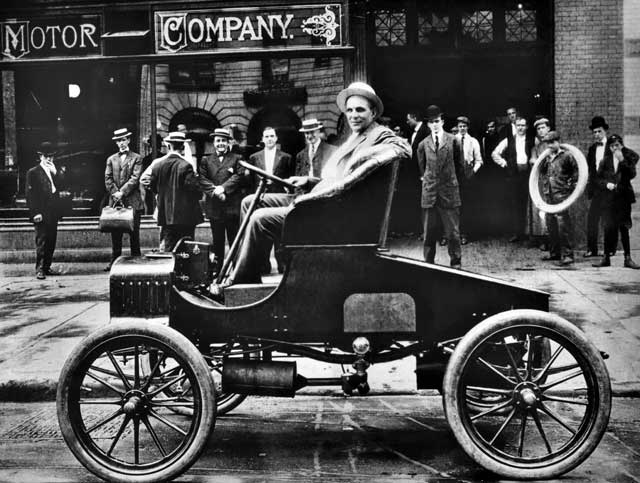Fordlandia, By Greg Grandin

Greg Grandin gets Henry Ford's most famous line out of the way on the first page: "You can have a Model T in any colour you want - as long as it's black." In fact, within a few years of saying that, Ford was selling cars in Arabian Sand, Rose Beige and Andalucite Blue. Likewise, while in some ways the model of a modern major capitalist – the richest man in the world and the Bill Gates of his day – he also often confounded expectations. A pacifist, he led the campaign in America against the First World War, pioneered forestry preservation and encouraged – indeed compelled - his staff to eat soya products because of his antipathy to cows.
Nothing demonstrates the eccentricity of this difficult tycoon more than "Fordlandia", the rubber plantation in the Amazon the size of Tennessee that he bought sight-unseen in 1928 and then tried to turn into a production-line township of the sort that had worked so well for him in the US. The industrial logic was sound: he needed to ensure a supply of tyres for his cars. But the project quickly became an attempt by Ford to create a Utopia of American values out of the "green hell" of the jungle. Into this wild and isolated part of Brazil he imported the incongruous vision of a model American town, with Cape Cod shingled houses, an ice-plant, golf course, square dances at weekends and even Prohibition (this went down badly with the Brazilian co-workers).
If the story were ever turned into a film, one can imagine the first few shots signalling the results of such hubris: the raindrops beginning to patter on the leaves, the tendrils curling up the fire escapes and the sound of distant drums. The jungle came back at Ford with every weapon at its disposal. One township had to be abandoned because of leaf blight. Local traders set up brothels and gambling dens just outside the picket fences. Bags of cement turned to stone in the rain. Malaria and yellow fever decimated the American workers. Vipers lurked in the undergrowth that kept encroaching on the manicured lawns.
The story is a gift to any writer and Grandin tells it with an easy wit and academic rigour. His best point is that Ford was not just trying to emulate the American dream abroad as, say, the United Fruit Company and Disney were to do elsewhere. He was trying to re-invent it. Just as Cotton Mather despaired of the early New England settlements and thought of setting up a new one in Mexico, truer to Puritan values, so Ford wanted his Amazon dominions to recreate an America he thought had long been lost.
Thus he continued to pour money into the project long after commercial logic dictated he should leave. His attempt to grow rubber failed for the same reason that the Amazon frustrated him on every count. He never appreciated that the rainforest was already a self-sustaining production-line of immense complexity. The trees that produce its best crops – rubber, brazil nuts – flourish in mixed plantations, receiving benefits from other flora and fauna. If grown too closely together, disease inevitably follows.
Ford set about "re-tooling the jungle" as if it were another of his mid-Western plants with not enough work-flow and too many unions. What is so curious about the mistakes that he made is that in other ways he could be so ecologically ahead of his time. The way he managed his forestry estates in Michigan were exemplary. But that was in country that the old farm boy knew. Ford never went to the Amazon to understand exactly what it was he was trying to control. His great mistake was to have bought something without looking under the hood.
Hugh Thomson's 'Tequila Oil' is published in paperback by Phoenix
Join our commenting forum
Join thought-provoking conversations, follow other Independent readers and see their replies
Comments
Bookmark popover
Removed from bookmarks